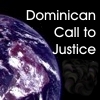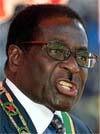In the face of such blatant injustice, one must ask why African heads-of-state, particularly those of neighboring countries, especially Thabo Mbeki and the ANC, the governing party of South Africa, refused to criticize Mugabe’s cruel, murderous dictatorship over the past decade. To a Western observer such silence might appear totally incomprehensible, not to mention irresponsible. After living and working in sub-Saharan Africa for over three decades, I likely see the situation from a very different perspective. Lest that perspective be misjudged, I need to insist that I do not support or approve the grave injustices perpetrated on the poor citizens of Zimbabwe. My sole purpose is to suggest why they, as well as African leaders in general, failed to rise up in protest. Mugabe, after almost 30 years of unyielding control, continues to wield a powerful psychological hold over his people, despite the tremendous suffering he has inflicted on the country. Of course, no one is going to be courageous enough to proclaim this openly before a horrified world. To help in understanding such a mindset I propose three reasons why this may be the case. First, Mugabe is greatly esteemed as arguably the first African leader who openly confronted the former colonial masters in Britain’s “Rhodesia”. In fact, this was referred to in the ANC’s response to the aggressive stance taken by the world’s democracies protesting the perversion of Zimbabwe’s electoral process. Secondly, the issue of land. Recall that a few years ago Mugabe, by simple decree, confiscated land owned and farmed by white Zimbabweans and gave the land to Blacks, primarily to his supporters and members of the military, who, totally lacking farming skills, nonetheless assured his control over the country. This grave injustice brought disastrous consequences. Once known as “Africa’s Breadbasket”, today tens of thousands of Zimbabweans are starving as the price of essential commodities doubles every week to the point where the country now struggles under an inflation rate of over a million percent! Again, a Westerner fails to comprehend the extraordinary relationship between the peoples of Africa and their land. Historically most tribal conflicts, even to this day, are rooted in claims over ancestral land. Land is inextricably connected to the person and, a priori, to the tribe. Land is so much a part of one’s personality that it identifies the community of the clan or the tribe. The ancestors are buried in the land and thereby it becomes inseparable from the community. In taking land from the former white colonizers, themselves citizens of Zimbabwe, and reputedly giving it to the Black citizens, Mugabe exerts an enormous psychological control that defies being broken. A last and final observation regards political leadership (or lack thereof) in sub-Saharan Africa where most heads-of-state seem incapable of acting in concert beyond the narrow confines of personal, or at best, national self-interest. If they overtly criticize Mugabe they fear their own dictatorial regimes would be vulnerable to closer scrutiny….”there but for the grace of God go I”. So, it appears, they find some security by joining together under the ANC’s chorus of complaints against the “arbitrary, capricious power” exerted by Africa’s former colonialists, which, no one can deny, is an historical fact. At the same time, however valid the complaint, it can never serve to justify Zimbabwe’s present anguish, though it may provide a dark shadow under which many African leaders can hide for the time being. Tomorrow, June 30, members of the AU (African Union) will hold their previously scheduled meeting in Sharmel Sheik at the famous Red Sea resort in Egypt. Yes, Robert Gabriel Mugabe, the illegitimate president of Zimbabwe, will participate. Though he should rightfully be banned, I wonder how he will be received by the African heads-of- State: as a secret hero or as a brutal tyrant? I suspect there will be a great deal of “foot-shuffling” and a few attempts at “saving face” but no unified, strong condemnation. And we can be sure the U.S. will be lobbying for its typical, quick-fix but proven ineffective economic sanctions against Zimbabwe for which Condoleezza Rice had been calling for some time. Economic sanctions only cause greater suffering on an already grievously oppressed people. What about political sanctions in which all world governments recall their respective ambassadors from Harare? Whatever happens at Sharmel Sheikh, Africa and the world cannot let an evil dictator rule unchallenged. Have we all already forgotten the likes of Mobutu Sese-Seko, Idi Amin, Sani Abacha and Charles Taylor? The former OAU (Organization of African Unity) failed miserably because one of its first guiding principles was not to interfere in each other’s internal affairs. The recently revised AU will have a chance to succeed only if it recognizes that when those affairs are so flagrantly unjust as in Zimbabwe, the principle needs to be radically changed. Bert Ebben, OP |



 Ongata-Rongai,
KENYA -- Today, Sunday June 29, 2008, Robert Gabriel
Mugabe was sworn in for a sixth term, literally a few minutes after
the Zimbabwean Electoral Commission announced that he was overwhelmingly
elected president by a “landslide” victory. Of
course! His
was the only name on the ballot after his longtime rival, Morgan
Tsvangirai, withdrew from a runoff presidential election in protest
against the state-sponsored violent attacks and intimidation against
him and his MDV (Movement for Democratic Change) Party. No one
of sound mind could possibly doubt the illegitimacy of the entire
electoral process, especially after Tsvangirai clearly won the
initial round of voting on March 29.
Ongata-Rongai,
KENYA -- Today, Sunday June 29, 2008, Robert Gabriel
Mugabe was sworn in for a sixth term, literally a few minutes after
the Zimbabwean Electoral Commission announced that he was overwhelmingly
elected president by a “landslide” victory. Of
course! His
was the only name on the ballot after his longtime rival, Morgan
Tsvangirai, withdrew from a runoff presidential election in protest
against the state-sponsored violent attacks and intimidation against
him and his MDV (Movement for Democratic Change) Party. No one
of sound mind could possibly doubt the illegitimacy of the entire
electoral process, especially after Tsvangirai clearly won the
initial round of voting on March 29.